If you were on social media last weekend, you'd know that new Karachi-based eatery Easy kicked up a storm on Facebook after publicly shaming an unnamed customer for leaving a 10-rupee tip.
Was it excessive on the restaurant's part? Yes. Has Easy responded to the criticism yet? No. So how should restaurants represent themselves in such situations? We'll get to that in just a moment.
Given that Karachi's food scene has expanded significantly in the past few years, customers want more than just a fancy place to visit and good food to eat. They want great customer service, and so more often than not it is the staff that carries the burden of the restaurant's reputation - which, truth be told, makes up a great deal of the dining experience.
Also read: 8 essential rules for eating out, according to Pakistani restaurant owners
Yes, customers are not always easy to deal with. Let's just throw the popular catchphrase "the customer is always right" out the window, it's archaic and self-destructive for restaurants, and the service industry is brutal, but there are ways for restaurants to navigate the blows and punches without throwing shade or remaining quiet when unpleasant situations arise.
Here's how restaurants can provide a safe and respectful environment for customers.
What's the deal with tipping?
Coming back to Easy, the popular eatery shamed a customer on their Instagram story for eating a 4k meal while tipping Rs10. They wrote: 'Some really big tippers dropped by at Easy last night.'
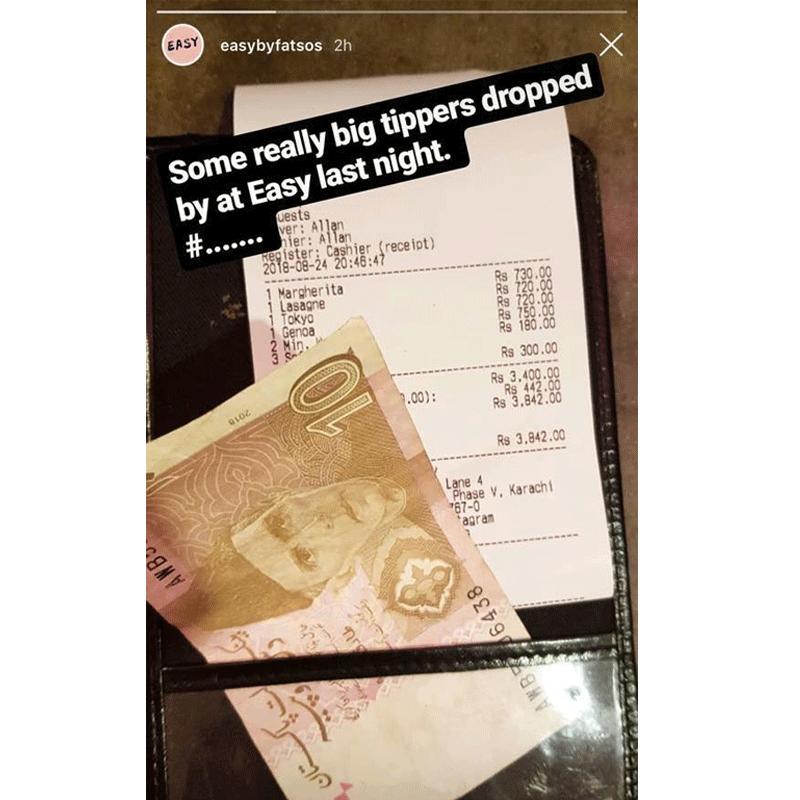
Needless to say, social media was unforgiving.
While the tipping amount varies from person to person - and frankly, is always up for discussion - a general rule of thumb is to leave around 10 - 20% of the total bill, according to Travel Channel. In Easy's case, leaving a Rs10 tip is perhaps not okay, but neither is shaming a customer for it.
Instead, Easy could've taken the high road and sent out a message on social media asking customers to be considerate of staffers by tipping them a reasonable amount explaining why tipping actually motivates them to work better and provide good service to customers. Treat the staff well and they'll willingly treat you well too.
Had Easy acted a bit more tactfully they could've saved themselves the social media bashing and gotten the point across.
No touching business
Recently, a new restaurant D'Alma was the topic of hot debate online for its sky-high prices (among other teething issues), but one of the strangest criticisms it drew was of a customer having been inappropriately touched by the restaurateur.

The owner may not have meant her act in an offensive way but non-consensual physical contact is an unsettling experience and completely unacceptable, especially by a stranger, even if they mean well.
Though this incident is a first of its kind, restaurant staff usually is mindful of crossing customers' personal space and maintain a certain degree of physical distance; a common example is when placing or lifting cutlery and food on/off the table.
Don't hover
This can be tricky. Restaurant staff should be around if needed and not disappear from sight, but they shouldn't hover while customers eat their meals. Like this customer points out, it can get "uncomfortable" and awkward.

Yes, it can be hard to balance the two as the staff wouldn't want to neglect customers or stand nearby staring, but it's as simple as doing periodic checks on their assigned tables with either a glance towards the customers or just simply walking over to the table to ask if there's anything else that's needed.
Stop overbooking
Eating out at a crowded place is no one's idea of a good dining experience, it's worse when there are people waiting for a table standing on diners' heads.
If you've frequented Xander's (Clifton), Easy and Espresso (Zamzama), you'll have an idea what all the fuss is about. They have limited seating - and space - and being the more popular eateries in Karachi, they tend to get packed fast. For a diner it can get irksome when restaurants pile on waiting customers in the dining area without adequate space to accommodate them.
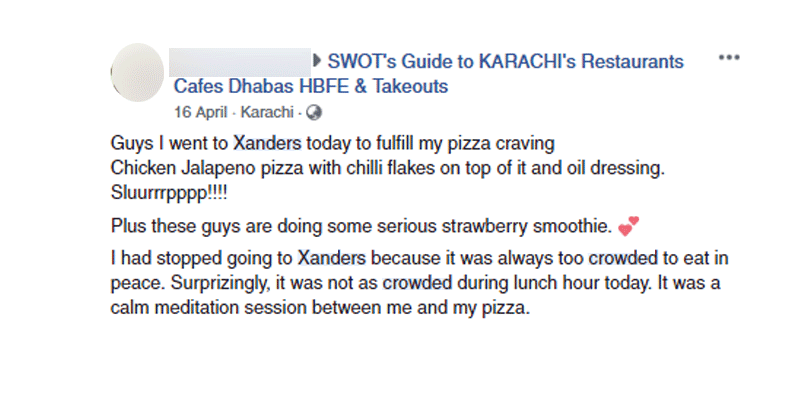
Loud and packed restaurants are as disruptive as waiting customers eyeballing diners to finish their meal and leave; restaurants should be particular when entertaining guests especially when there is a lack of space available for them to sit.
Some restaurants also tend to overcommit and quote a wait time which often exceeds to twice as much. It's exasperating for customers, causes more chaos and also leads to this:

In such cases, restaurants which have a high turnover, should take a leaf out of Loco's book and keep a time limit for each table and specify during reservations that tables are only available for a certain time period.
What about children?
Sometimes children can be a handful in public spaces - parents will relate. A nice night out at an eatery can turn into a unpleasant experience, for the parents, the restaurant staff and customers.

Restaurants try their best to provide an atmosphere most suited for their customers which is why places like Okra and Flo have adopted a no-child policy, though this often draws criticism, it's important to note that implementing such a policy is at the discretion of the restaurant. Having said that, restaurants should make this known on their social media pages and during reservations. No one likes being told at the gate or reception that they cannot be accommodated with their child(ren).

Other places make use of an age-limit around dinner time something which is usually appreciated by customers.
Mind your language
This is a no-brainer. You.do.not.abuse.customers.
In a now deleted post, a customer complained against Red Riding Hood Bakery's owner for hurling abuses at him on texts. He posted screenshots of their exchange on a food group - which the admin deleted - but the complainant posted his grievance again sans the screenshots and called out the bakery for its appalling customer service.

After receiving backlash, the owner was forced to apologise to the customer.

Restaurants have to bear the burden of always respecting customers, even when they are being unreasonable or rude. Interactions with customers are important because they make or break the impression of a restaurant and the people behind it. A simple slip can create havoc on social media and affect business. That being said, staff should always be trained on the kind of language to use when dealing with difficult customers. It is during these sticky situations that a restaurant has a chance to rise above.
Dealing with food complaints
Sometimes it’s a piece of plastic, or an insect but most commonly its hair that manages to make its way into food.
Eateries aim to serve the finest they can but minor faults are unavoidable. In this case Dunkin' Donuts lost a chance at handling a situation well.

What the staff could've done was apologised and immediately ordered fresh donuts to replace the bad ones free of charge. Please note: these incidents give restaurants a gateway to go above and beyond.
DD could've also, 1) told the customer that due to their carelessness the food is on the house or 2) compensated for their mistake by giving them a free box of donuts. This, however, shows a lack of training on the management’s part. The staff should be well-equipped with how to deal with such incidents.
So when somebody yells, 'Waiter, there's a fly in my soup!' instead of saying 'Don't worry sir, it won't drink very much of it,' sincerely apologise for the mistake and be creative in making it up to the customer - a free lunch for two next time, maybe?







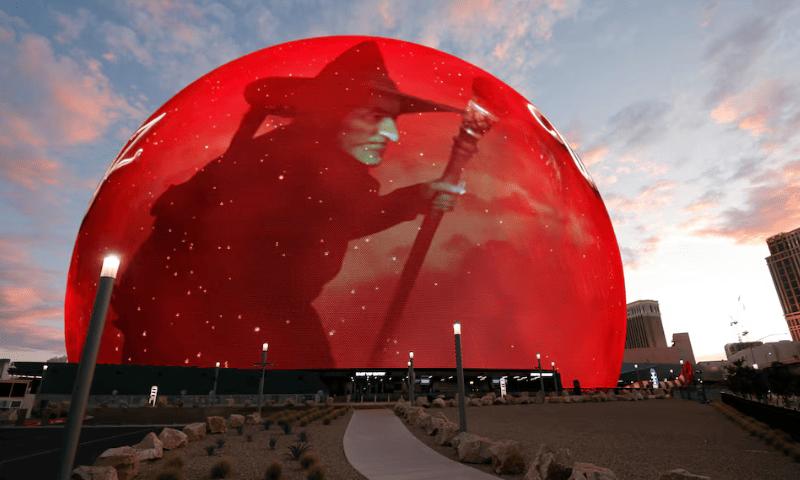

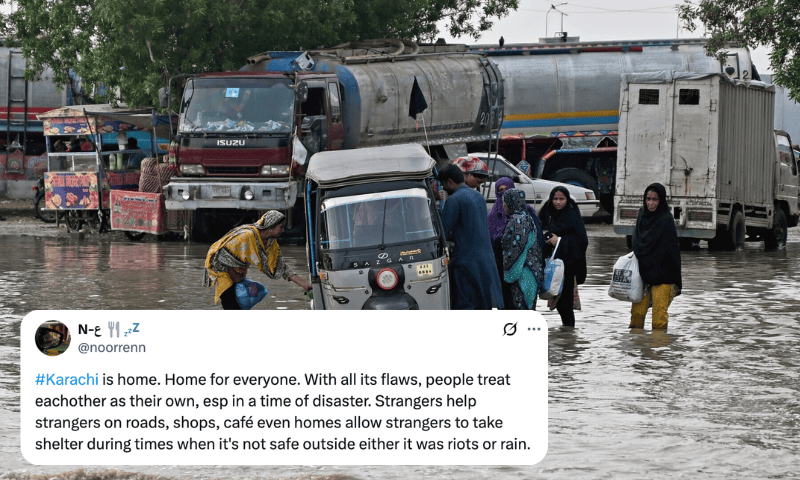

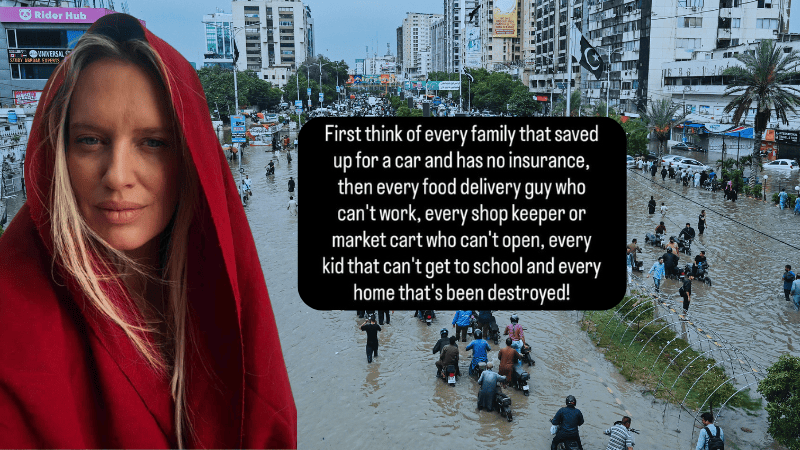


Comments